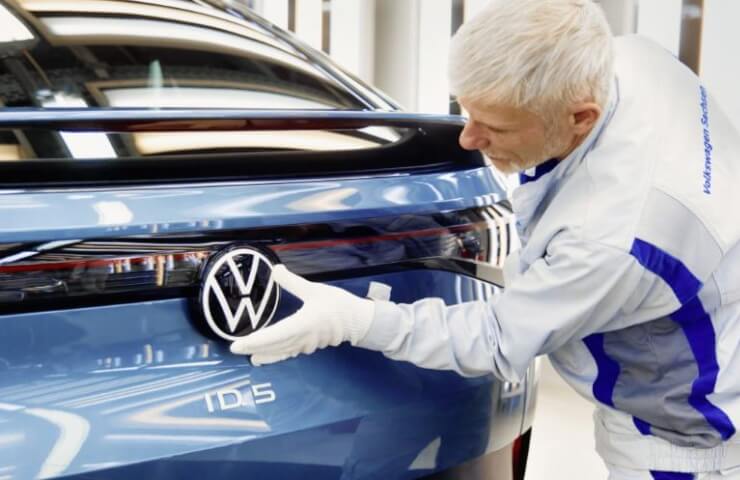“Metal market sentiment is pessimistic, especially in Germany, where many companies are cutting [production] and announcing layoffs,” a German trading source told Fastmarkets on Monday, December 23.
After several strikes and more than 70 hours of collective bargaining, VW and the IG Metall union have finally reached a "Zukunft Volkswagen" agreement that determines the company's future until 2030, VW said in a statement late Friday December 20.
Initially, the VW board of directors insisted on the closure of three car plants, which was avoided, but then mass layoffs and production cuts were announced.
It is noteworthy that until 2030 in German factories are planned to reduce capacity by 734,000 units, and the workforce at German VW plants will be reduced by more than 35,000 by 2030 people.
However, IG Metall said that it was pleased with the results.
“It’s true, [there will be job cuts]. But you must take into account that the “job cuts” will be socially responsible, that is, solutions will be found in the form of part-time employment in retirement, etc.,” an IG Metall representative told Fastmarkets on Monday.
A statement from IG Metall, seen by Fastmarkets, said: “Although the collective agreement provides for concessions that go beyond the monthly income [i.e. e. changes in bonuses and holiday pay], they are compensated by the joint protection of all objects, including future prospects [and] new job protection until the end of 2030.”
The jointly stated goal announced for the Volkswagen Passenger Cars brand, core of Volkswagen AG is to become the technologically leading manufacturer in the world in terms of sales by 2030.
“Comprehensive capacity reductions at German plants, as well as significant and the sustained reduction in labor costs of 1.5 billion euros ($1.56 billion) per year under the Zukunft Volkswagen agreement have now created the financial conditions to achieve this goal,” VW said in a statement on Friday.
In total, VW plans to save more than 15 billion euros per year in the medium term.
Restructuring of production sites
The ID.3 and Cupra Born electric cars will be produced at the plant VW in Wolfsburg. Production of the Golf and Golf Estate will move from Wolfsburg to Mexico in 2027, but the electric Golf and electric vehicle (EV) based on the modular vehicle platform Scalable Systems Platform (SSP) will be produced in Germany around 2030.
As a result production will be concentrated on two assembly lines instead of the current four.
The Emden plant will continue to produce the ID.4 and ID.7
The Osnabrück plant will cease production of the T-Roc Cabrio in mid-2027. “Options for other uses of the site are currently being explored,” VW said.
From 2027, the Zwickau plant will focus on a single production line, which will produce the Audi Q4 e-tron and Q4 e-tron Sportback .
The Dresden plant, known as the "Transparent Factory", will stop production until the end of 2024. The ID.3 is currently being produced there; VW said it is working on alternative options for the plant.
Volkswagen Group Components' production sites in Kassel, Braunschweig, Salzgitter, Hanover, Wolfsburg and Chemnitz will remain, but new working hours models will apply at these sites, which will make production capacity more flexible.
The European automotive sector is in decline, according to the latest quarterly report from the European Steel Association (Eurofer), published at the end of October,
Output in the EU automotive sector is expected to decline in 2024.
According to the association, the sector is expected to contract by 6.5% in 2024 (revised downward from a 3% decline in the previous forecast) and grow by just 1.9% in 2025 (revised down from 2.3% growth).
According to the European Automobile Manufacturers Association (ACEA), published on Thursday, December 19, new car sales in Europe fell 1.9% in November, driven by a 9.5% drop in overall EV sales, including a 21.8% drop in EV sales in Germany.
In September, VW said annual vehicle demand in Europe should stabilize at around 14 million vehicles, below the pre-COVID figure of 16 million.




